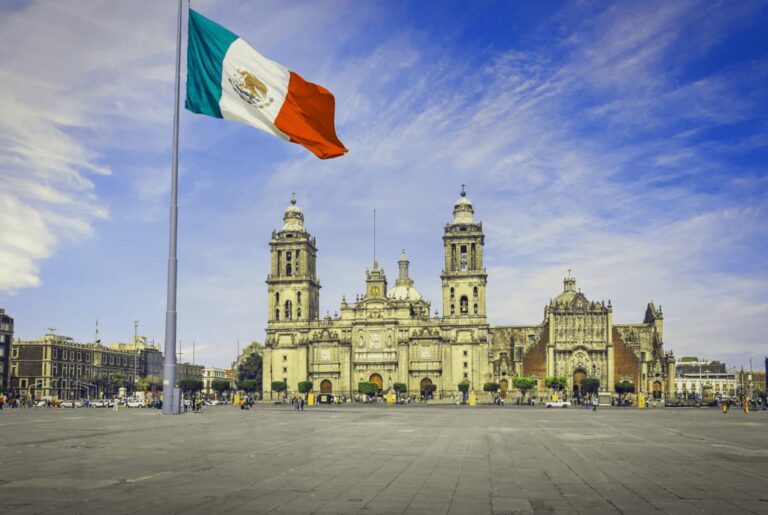Mexican peso exchange rate
Are you interested in the current exchange rates and the price of the Mexican peso? Stay up to date at all times! Below we present the current quotes of the Mexican peso in our online exchange.
The exchange does not buy this currency
Mexican peso exchange rate - chart
The chart is updated in real time
Problem with data downloading.
Exchange rate Mexican peso in the charts is presented for indicative purposes, based on approximate data and is not of a transactional nature, i.e. it is not part of the website's offer or a proposal to make a transaction.

Mexican peso
According to the ISO 4217 standard, the Mexican peso is marked with the MXN code. Due to the symbol used to describe the currency of Mexico, i.e. $ (Mex$), many tourists are convinced that the official currency is the Mexican dollar, which of course is not true.
The contemporary Mexican peso
The Mexican peso is divided into 100 centavos. The following coins are in circulation: 5, 10, 20 and 50 centavos as well as 1 peso, 2 pesos, 5 pesos and 10 pesos. Banknotes come in denominations of 20, 50, 100, 200, 500 and 1000 pesos. Mexican currency in coins is decorated with motifs referring to the pre-Columbian culture, some of the coins also present images of famous personages. Mexican banknotes show graphics related to Mexico: portraits of political activists and artists, as well as characteristic sights. The new series of G banknotes (end of issue is planned for 2022) will refer to subsequent periods of Mexican history. Banco de México, commonly known as "Banxico", oversees the supply of the Mexican currency and the variations in its exchange rate.
For Poles, the exchange rate of the peso at a given moment usually does not matter much due to rather insignificant economic connections. We are most often interested in the conversion rate of pesos to zlotys in the context of tourist trips. Therefore, it is mainly travellers who keep an eye on the MXN PLN pair. Due to low demand for this currency, the easiest way to exchange MXN for PLN is via the Internet. Although the currency in Mexico has a relatively low purchasing value (the PLN MXN ratio varies between PLN 0.2 and PLN 0.25), MXN plays a significant role on the FOREX market – the current exchange rate of the peso may also be of interest to Polish investors.
Peso – the currency of Mexico and its history
The first coins appeared in present-day Mexico with the arrival of the Spanish conquistadors. The pesos of the time were in use until Mexico's independence in 1821. During the reign of Emperor Augustine, banknotes were introduced, and after the overthrow of his rule, minting of coins was resumed. The Mexican pesos then had an exchange rate similar to the Spanish dollar. From the adoption of the new constitution until the Great Oil Depression, the Mexican pesos were relatively stable – the currency depreciated severely due to inflation. The banking system was then reformed, and in 1993, the so-called New Mexican peso was introduced. The conversion to the modern peso was set at 1000:1.
The currency of Mexico in its current shape is therefore young. Globally however, the Mexican peso exchange rate is of great importance – in 2018, MXN was ranked 10th among the most traded currencies in the world. As for the exchange rate itself, the Mexican peso is an interesting currency because, although it is the most important currency in all of South America, it cannot be considered stable. The peso exchange rate is quite sensitive to changes in the value of the dollar and decisions of the USA affecting the Mexican economy and society. The second problem faced by the Mexican peso – the exchange rate of this currency – is to some extent dependent on the oil that Mexico exports.
Interesting facts about the MXN
-
The Native American custom of using cacao beans as a substitute for money survived until the beginning of the 20th century. This form of "payment" functioned alongside the Mexican peso at the time.
-
The 10, 20 and 50 centavo coins in Mexicans’ wallets are made during the production of higher denominations. Thanks to this, Mexico has already saved the equivalent of about PLN 60 million.
-
The name of the Mexican currency comes from Latin. Translated literally from Spanish, “peso” means “weight”.

The notification has been enabled
When the exchange rate EUR is lower than you will receive an email to this address